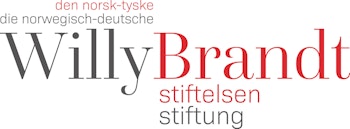
Who Killed my Father /Qui a tué mon Pére Who Killed my Father /Qui a tué mon Pére
Édouard Louis enters stage for the first time in this moving monologue about his own father.
Throughout my childhood, I hoped you would disappear.
This is what Édouard Louis wrote about his own father. But in the form of a novel, he has tried to understand his father, why he had become the man he was.
All his life, Louis has felt disgust for his violent, alcoholic, right-wing father. His homophobic outbursts traumatized him for life, and the bad memories lie deep within Édouard Louis. But when the French author in the novel Who Killed My Father? confronts his now seriously ill father, anger turns to compassion:
You can no longer drive, you can no longer drink, you can no longer shower without help, without it posing an enormous risk. You are a little over fifty. You belong to exactly the category of people for whom politics has envisaged a premature death.
From perpetrator to victim
The one he saw as a perpetrator has become a victim. The penchant for violence now seems to be more a consequence of continuous humiliation and social brutality. Using the destroyed body of his father as a starting point, Louis undertakes a defiant rewriting of France's recent political and social history. It is a chronicle of an ongoing murder, of a conscious mutilation as a result of neoliberal "reforms" and the brutal consequences of these for the workers, who are forced to experience this in their bodies. A polemical and rebellious pamphlet against oblivion, exclusion and physical violence in a class society - and at the same time an intimate declaration of love to a person who is almost impossible to love.

Director Thomas Ostermeier
The director of the production, Thomas Ostermeier, is one of the most sought-after directors in European theatre in the last twenty years. His productions tour large parts of the world, and he has received a number of awards for his work. The most prestigious of these is perhaps The Golden Lion at the Venice Biennale for his entire career.
Ostermeier began his directing career at Die Baracke at the Deutsches Theater, where he was artistic director from 1996-1999. This is where he developed an interest in what is still his trademark; capitalist realism. This is theatre that forces the audience to see the dirty reality caused by the brutal capitalist system, and which criticizes our social values.
Since 1999, Ostermeier has been house director and part of the artistic management at Schaubühne Berlin.
AUDIENCE INFORMATION
LANGUAGE French, subtitles in English.
Qui a tué mon père / (Who killed my father? is produced by Schaubühne Berlin and Théâtre de la Ville Paris.
Supported by The Senate Department for Culture and Europe, Berlin.

Supported by Die Norwegisch-Deutsche Willy Brandt Stiftung.
Kjøp billett
Vel speledato for Who Killed my Father /Qui a tué mon Pére
-
Ledige billettar
-
Ledige billettar